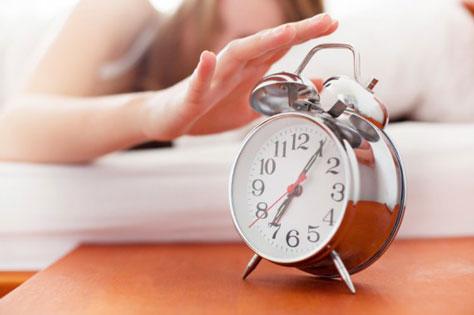The Australian Unity Wellbeing Index has found that people who sleep for less than six hours a night had lower wellbeing levels compared to those who got seven to nine hours sleep.
However, levels of satisfaction dropped off when people slumbered for more than 10 hours a night, according to the survey of 2000 Australians.
Overall, about 30 per cent of people surveyed slept for seven hours or less a night while two-thirds sleep between seven and nine hours.
The Deakin University report, The Wellbeing of Australians - Quantity and Quality of Sleep, said people who sleep more than 10 hours may have a lack of purpose in their lives, while those who sleep less than seven hours are more likely to be stressed.
"Sleep closely correlates to people's overall wellbeing," said lead author Robert Cummins, head of Deakin University's Australian Centre on Quality of Life.
"Those who sleep six hours a night report significantly lower levels of satisfaction with their health and safety, which are linked to higher anxiety.
"This in turn can cause, or be caused by, a lack of sleep.
"Bringing this to light might encourage people to flick off the light switch or put down the remote control a little earlier," Professor Cummins said.
University of Sydney sleep medicine Professor Ron Grunstein said it was important to determine whether the lack of sleep was leading to lower wellbeing, or symptoms such as stress and anxiety were causing people to toss and turn.
"There's the possibility it's a vicious cycle," Prof Grunstein said.
He said it was equally important to focus on the wellbeing of people sleeping longer hours, which may be an indicator of depression or sleep apnoea.



















__small.png)










